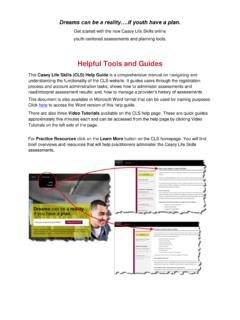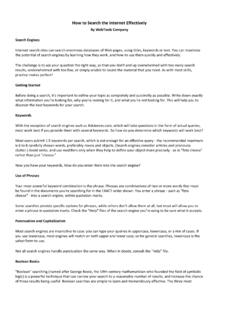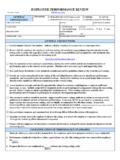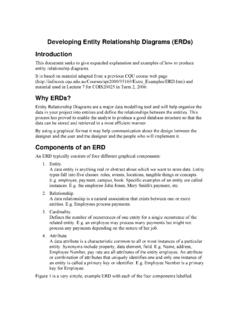Transcription of What Makes A Good Supervisor? The Twenty …
1 what Makes a good supervisor ? The Twenty qualities of a good supervisor by Easy Small Business HR (March 2011) An effective supervisor : 1. Is strategic, detail-oriented and proactive. 2. Does not favor or provide an unfair advantage to some employees over others. 3. Is fair but firm when need be. 4. Shows common courtesy and respect to all employees even their most difficult staff. 5. Really listens to their employees concerns and helps them with determining the best path towards resolving those concerns. 6. Supports and encourages staff development. 7. Takes the time to understand the work that their staff performs. 8. Makes themselves available and takes the time to meet with employees. 9. Has at least a general understanding of their employees strengths and weaknesses. 10. Praises their employees for doing good work on a regular basis.
2 11. Requires that all employees work to their fullest capacity. 12. Addresses difficult workplace situations immediately. Does not let workplace issues progress to a point where it affects employee productivity and morale. 13. Shares with employees any information as appropriate that impacts the company. 14. Share their goals and expectations with staff. 15. Is very clear when assigning tasks to their employees about what needs to be done and when the work should be completed. 16. Is not afraid to let their employees have their time in the limelight and, in fact, encourages it. 17. Is always willing to delegate work to others instead of trying to take care of everything. 18. Treats their staff as partners and not as subordinates. 19. Does not take credit for individual or collective employee accomplishments. 20. Acts as a buffer for their employees when issues arise with clients or customers as appropriate.
3 Reprinted with permission by Easy Small Business HR.














